
In patients with advanced breast cancer, oncology nurses play a key role in outcomes by providing education and supporting adherence to a treatment regimen.

In patients with advanced breast cancer, oncology nurses play a key role in outcomes by providing education and supporting adherence to a treatment regimen.

CE lesson worth 1 contact hour that is intended to advanced practice nurses, registered nurses, and other healthcare professionals who care for patients with cancer.

When a woman learns she carries a BRCA gene mutation—and thus, in her lifetime, faces an 87% risk of developing breast cancer and a 63% risk of getting ovarian cancer—she has a difficult decision-making process ahead of her. One nurse created an easy-to-understand guide that explains all options and their pros and cons, for use by oncology nurses working with BRCA mutation carriers who do not have cancer—previvors.

As the Food and Drug Administration continues to approve additional indications for olaparib (Lynparza), health care providers and caregivers should be aware of the potential adverse effects (AEs) associated with treatment.

Researchers recommended that survivors of younger-adult breast cancer learn and watch for the signs and symptoms of heart problems or failure, such as shortness of breath and fatigue, and always go to their follow-up appointments, where health care practitioners may keep tabs on their heart health.
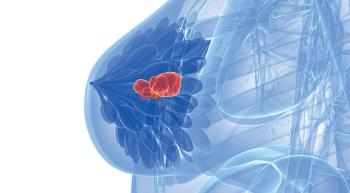
Ribociclib (Kisqali), a targeted CDK4/6 inhibitor, is gaining traction in the treatment of hormone receptor–positive, human epidermal growth factor receptor (HER) 2–negative advanced breast cancer, and nurses and patients need to be educated about its possible adverse effects (AEs).

Not only are PARP inhibitors proving to be an efficacious treatment for patients with metastatic breast cancer, but they're also improving quality of life, too.

Several breast cancer treatment programs are reporting substantially less clinical lymphedema, particularly among patients at high risk after axillary dissection, radiation, or taxane-based chemotherapy, crediting their use of preclinical detection using bioimpedance spectroscopy (BIS).

Oncologist Kelly McCann, MD, PhD, reviews the vast improvements in the treatment landscape for patients with HER2-positive breast cancer, as well as the work that lies ahead.

Mail-in DNA tests may not provide enough information to people looking for answers about their genetic predisposition to cancer.
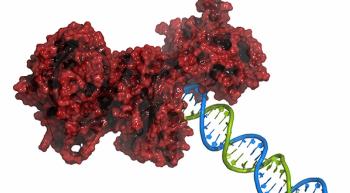
Nadine M. Tung, MD, discussed the role of PARP inhibitors for patients with BRCA-positive breast cancer and the importance of genetic testing.

Direct-to-consumer genetic testing enables individuals to pursue testing independently and without interference from a healthcare professional. But is there a downside?

BLU-667 appeared to be well-tolerated and had broad clinical benefit among patients with advanced, RET-altered solid tumors who progressed on prior therapies, according to study findings from a phase I clinical trial presented at the AACR Annual Meeting 2018.
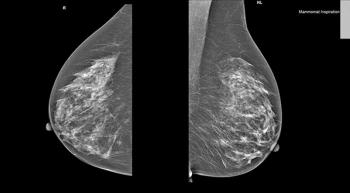
The National Comprehensive Cancer Network (NCCN) guidelines on breast cancer now allow physicians to pinpoint the women who are most likely to benefit from post-mastectomy radiation using the latest targeted testing techniques.

Systematic exposure to bright morning light could help patients with cancer and survivors sleep better and experience less fatigue.
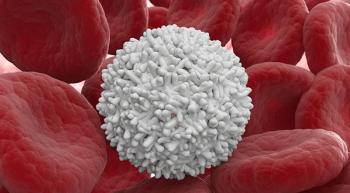
A filgrastim (Neupogen) biosimilar, EP2006, recently produced safety results equivalent to those observed with referent filgrastim in a combined analysis of 2 phase III breast cancer studies from the United States and Europe.

CE lesson worth 1 contact hour that is intended to advanced practice nurses, registered nurses, and other healthcare professionals who care for patients with cancer.

Nurses should be aware of the phenomenon of breast implant-associated anaplastic large cell lymphoma.

A group of researchers in the northeast United States conducted a study to explore how women become informed about breast cancer surgery options.

Endocrine therapy can reduce tumor size in patients with ER-positive breast cancer. It can even help some patients avoid chemotherapy or even surgery. Deciding how long to continue this therapy can be tricky though.

By taking the nonthreatening approach of consulting a genetic counselor, plus the simple act of sending out a freshly collected 1-cc sample of saliva, I will affect not only my health but also the well-being of my daughters, son, and grandchildren.

The latest revision of the staging manual for breast cancer from the American Joint Committee on Cancer (AJCC) codifies advanced knowledge of the role of biologic factors in cancer.

The availability of PARP inhibitors for the treatment of patients with BRCA-mutant metastatic breast cancer has the potential to usher in a new era for targeted therapies.

Breast cancer survivors who exercise could reduce their risk of cardiovascular events, stroke, and diabetes, study shows.
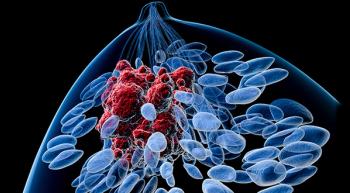
Ribociclib (Kisqali) improves progression-free survival (PFS) in pre- or perimenopausal women with hormone receptor–positive, HER2-negative advanced or metastatic breast cancer. These results, shared at 2018 Miami Breast Cancer Conference, were sustained across patient subgroups.